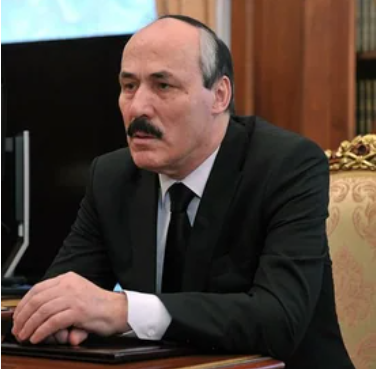Russia's contradicting nationalisms
According to ex-President of Dagestan Abdulatipov, today's nationalisms in the former Soviet Caucasus seem to nullify traditions, harking back to medieval origins of feudal disintegration, without taking into account the ‘historical, cultural and human experience of inter-ethnic and inter-religious integration’.
Moscow (AsiaNews) - The Rossijskaja Gazeta has published an extensive article by one of the most authoritative experts on the problems of the North Caucasus, the politician, diplomat and professor Ramazan Abdulatipov (former president of Dagestan, pictured) on the ‘National Question in Russia and the World’. In his opinion, the great changes of this period are reflected very acutely in the development of countries and peoples, and in the principles that direct them.
After the end of the Soviet Union, the phenomena of artificial unions between national groups, which for self-interest were ready to betray the Fatherland, became apparent, and after the tumultuous post-Soviet phase today Russia cannot be held together with the ‘spirit of capitalism’, but only with the spirituality of values that unite Russians with the other peoples of the Federation.
It is necessary, according to Abdulatipov, to ‘guard against provocateurs’ of all kinds, who speak of national identity to achieve their own personal and group goals, manipulating their countrymen on an ethnic basis to divide the world between the ‘chosen’ and the ‘cursed’.
Russia's current authorities have to take into account the long experience of past centuries, something that the former Dagestan president seems to be doing very poorly today, and the short-sightedness of officials at all levels does not help to value the ‘law of succession’ that unites the forces of a ‘great multinational country’. Some politicians in various regions are trying to ‘defend their own peripheral orchard’, and are ready for this to give rise to inter-ethnic conflicts to the point of bloodshed.
Without naming names, Abdulatipov condemns the undue prominence given to those who want to present themselves as ‘national leaders’ of radical tendencies, who must instead be isolated and placed in a position to do no harm.
He observes that ‘officials and administrators, deputies and religious leaders exalt their role in defence of the people and the faith, arguments that are very fashionable today in order to gain power’, especially in the Caucasus, where ‘in every city there is a different ethnic group’. The politician also condemns the many Western propagandists in Europe and America who beat on these buttons, fuelling ‘anti-Russian nationalism’.
A crucial role is recognised for the Russian Orthodox Church, on whose positions ‘the preservation in the country of stable relations of friendship and cooperation between peoples and religious denominations depends’. Current nationalisms seem to be annulling traditions, harking back to medieval origins of feudal disintegration, without taking into account the ‘historical, cultural and human experience of inter-ethnic and inter-religious integration’.
Abdulatipov defends the Kremlin's recently approved ‘National Policy Strategy’, accused of being a neo-colonial policy programme. Instead, in his view, the aim is to orient the peoples of Russia, the authorities and society towards ‘strengthening concord between nationalities, unity of social life, ensuring support for the Federation's ethno-cultural and linguistic multiformity’, countering all forms of socio-cultural, racial and other discrimination, as a ‘prophylactic of extremism’ and prevention of conflicts, especially on a religious basis.
The politician concludes by stating that ‘all of us in today's Russia must rise to the level of spirituality, culture, morality and dignity of all our peoples, preserving traditional moral and spiritual values in the culture and ideology of Russia’. This must succeed in offering a ‘model for building a multinational world based on sobornost and the friendship of peoples’, and Russia's future path beyond the current conflicts, in its internal life and in international relations, depends on this.







.png)










